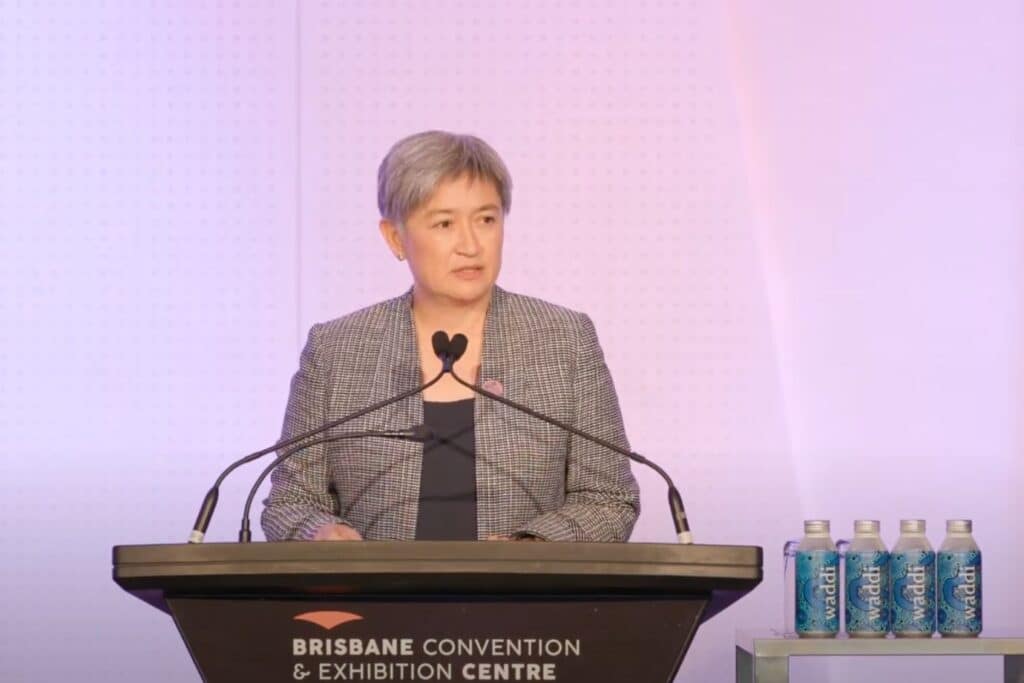Australia’s Foreign Minister Penny Wong is “deeply concerned” about the lack of international attention on gender equality, despite positive reception of the FIFA Women’s World Cup.
Addressing global leaders at the Gender Equality Symposium, in Brisbane this morning, Wong said the record-breaking soccer tournament, hosted by Australia and Aotearoa New Zealand, is a reminder of “where we’ve been” and how far there is to go in addressing global gender equality.
“The FIFA Women’s World cup reminds us how we can come together as an international community,” she said.
“We should take this opportunity to reflect on the benefit to our communities when women and girls are supported to engage, and on our responsibility to champion that inclusion.”
The 2023 Women’s World Cup is the largest to date, with 32 countries participating and eight countries debuting. So far, a record-breaking 1.5 million tickets have been sold.
But this is a far cry from where women’s sport was 100 years ago.
In 1921, Australia’s soccer association Football Australia banned women from playing publicly on official grounds. There were “concerns for women’s reproductive health” and the association deemed soccer “medically inappropriate” for women to play.
Wong said although Australia has come a long way since then, not all countries have. Attending the Gender Equality Symposium was Afghanistan’s women’s soccer team, who fled to Australia after the Taliban takeover in August 2021.
“I wish that you were here under different circumstances, and I wish that you were participating in this world cup with your country behind you,” Wong said to the team in her speech.
“Their presence here is a reminder of how much work there is to do, a reminder to us all that you can never take equality for granted, that progress is almost always resisted and that we must always work to protect our gains.”
Amid World Cup mania in Australia and around the world, Wong said global leaders must prioritise gender equality in order to develop in other areas.
“Gender equality isn’t an objective to be deferred or de-prioritised against serious matters such as health or economic prosperity. It’s a prerequisite,” she said.
“Australia is deeply concerned that there is a growing number of international actors suggesting that gender equality should take a backseat.
“The downgrading of gender equality in the global development initiative is bad for development and all the evidence indicates that this trade-off is false.”
Research from the McKinsey Global Institute in 2015 estimated that by closing the gender gap in economic participation, global GDP could increase by $12-28 trillion.
“There is a growth dividend from gender equality, which is good for all countries, but is particularly important for developing countries,” Wong said.
One of the 17 United Nations Sustainable Development Goals is to achieve gender equality by 2030, something which Australia and 192 other countries committed to.
“Our government and this nation is committed to doing our part to delivering the Sustainable Development Goals – all of them,” Wong said.
“And we recognise that the aspirations we champion in the region – peace, stability and prosperity – can only be achieved if we continue to see progress on gender equality.”


